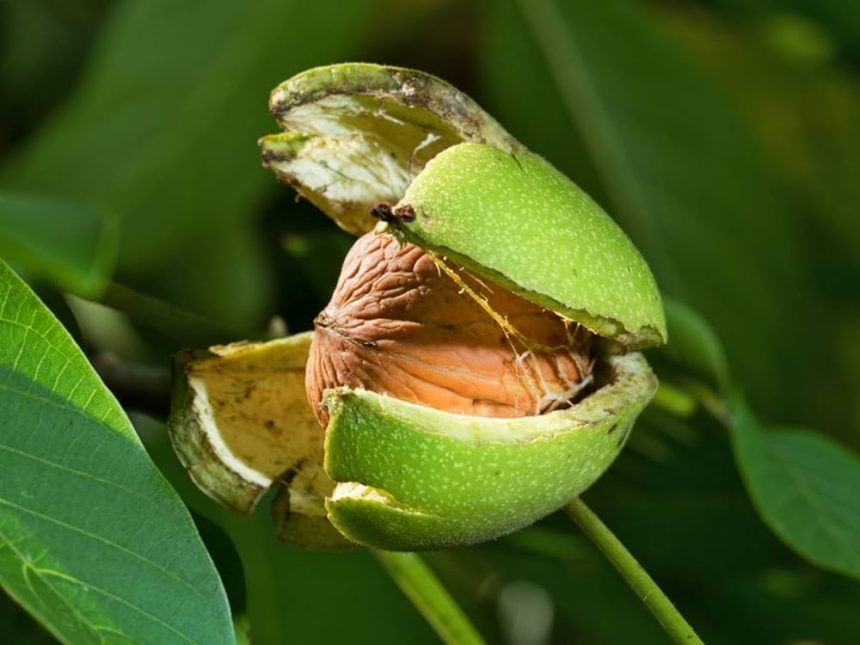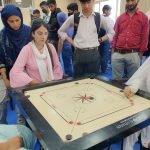Srinagar, Sep 10: Fall from walnut and other tree-related injuries are the most common causes of trauma in parts of rural Kashmir, particularly, during the harvest season.
Two days ago, two persons Aijaz Ahmad Khan and Mohd Ashraf, both residents of Kokernag died in two different incidents of falling from walnut trees in south Kashmir’s.
Fall from trees are not new. Every year, the valley witnesses fatalities from falls during walnut harvesting, as people often neglect safety precautions and fail to use protective gear.
Recently, doctors at Government Medical College, Srinagar’s Surgery and Orthopedics departments conducted a one-year review of all admissions for trauma, due to falling from trees to the Accident and Emergency Department of GMC Srinagar.
“The study revealed that walnut trees are the most commonly involved trees in such cases. It was the 4th most common cause of trauma-related admissions during harvest season,” the study conducted by five doctors said.
There was only one female admitted with such trauma out of 106 patients. “Forearm fractures were the most common injuries overall. Head and chest trauma were the commonest causes of death,” the study said.
There are many strategies for preventing such injuries; the most important being to stop small boys from climbing tall trees and also the more frequent use of grafted walnut trees. Such falls are a serious occupational hazard for many subsistence farmers.
As per doctors the significant mortality and morbidity associated with fall from walnut trees is due to crude traditional methods applied in collection of walnuts.
“If the farmers are educated and more scientific methods based on common sense are used, many lives can be saved. Falls from walnut trees need to be included as an occupational hazard in medical literature,” said another research done at SKIMS Soura.
Following the two deaths due to falling from walnut trees, Dr S. Muhammad Salim Khan, Professor, Head, Dept. of Community Medicine, GMC Srinagar said, “Walnut harvesting has become deadly with every passing year; deaths and paralysis of poor earning hands due to falls devastate families for generations.”
On the other side people blame the Horticulture Department for failing to create awareness among the farmers and for not providing protective gear.
Walnut trees are huge that grow up to the height of 40–50 ft and the bark of these trees is very slippery. When farmers climb to trees carrying a long stick in hand to hit the fruit, they lose their balance resulting in a fall from the tree.
Director Horticulture Kashmir, Zahoor Ahmad said the department has established nurseries in every district of Kashmir to prepare high density plants that don’t grow like the traditional plants that are in the valley.
The director said the reason behind falling from walnut trees during harvest is due to the crude traditional methods applied in the walnut harvest.
In view of accidents or deaths due to falling from walnut trees, the department Kashmir has advised people to follow safety measures to avoid any such tragic incidents in future.
“If farmers want to establish a new walnut orchard they are advised to plant grafted plant varieties having low risk. We advise them to plant only those varieties that are not huge in height unlike traditional or existing walnut trees that have huge size and height,” he said.
The director said people should resist harvesting walnuts during rains and do it only after trees become dry properly to avoid slip. He said only those people should be involved in harvest who have expertise or techniques for the same.
The farmers have been advised to wear non-slippery shoes and check weather forecasts by the IMD before planning for the harvest.
“Workers should not use long metal poles to harvest the trees, as accidental contact with electric lines could result in electrocution, serious injury or death,” said an official of the horticulture department.
He said people should also remove logs, stones, boulders around the base of the tree and also use nets to reduce risk. “Ensure a stable and firm position before beating the walnuts. Learn basic first-aid from the nearest health centre,” he said.








